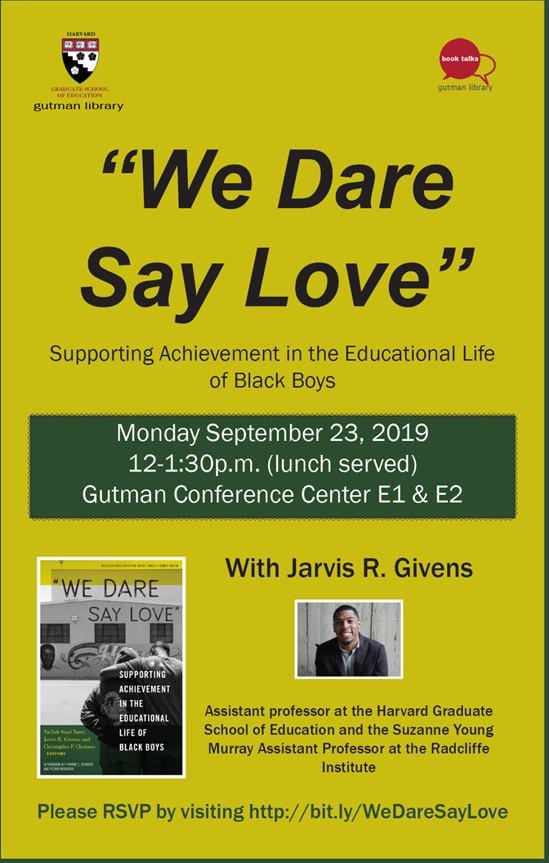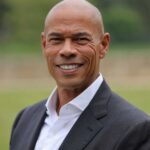Discussion
“We Dare Say Love”: Supporting Achievement in the Educational Life of Black Boys
When: September 23, 12:00 PM - 1:30 PM
Where: Gutman Conference Center E1 & E2 - 6 Appian Way, Cambridge, MA
Ages allowed: All Ages
Cost: Free

“WE DARE SAY LOVE”: Supporting Achievement in the Educational Life of Black Boys
Gutman Library Book Talk
Featuring speaker – Jarvis R. Givens – Assistant Professor at the Harvard Graduate School of Education and the Suzanne Young Murray Assistant Professor at the Radcliffe Institute
Monday, September 23, 2019 (lunch will be served)
12-1:30pm
Gutman Conference Center – E1 & E2
6 Appian Way, Cambridge, MA 02138
ABOUT “WE DARE SAY LOVE” by Christopher P. Chatmon
“We Dare Say Love” takes up the critically important issue of what it means to educate Black male students in a large urban district. It chronicles the development and implementation of the African American Male Achievement Initiative in Oakland Unified School District, following a small group of Black male educators who changed district policy and practice to create a learning experience for Black boys rooted in love. The book takes readers inside the classrooms and inside the heads and hearts of program founders, leaders, and instructors to understand their pedagogy of care. It also elucidates the rituals, beliefs, and practices that created a classroom environment that held high expectations for the engagement and achievement of Black boys and provided a space for Black male students to blossom.
“We Dare Say Love” takes up the critically important issue of what it means to educate Black male students in a large urban district. It chronicles the development and implementation of the African American Male Achievement Initiative in Oakland Unified School District, following a small group of Black male educators who changed district policy and practice to create a learning experience for Black boys rooted in love. The book takes readers inside the classrooms and inside the heads and hearts of program founders, leaders, and instructors to understand their pedagogy of care. It also elucidates the rituals, beliefs, and practices that created a classroom environment that held high expectations for the engagement and achievement of Black boys and provided a space for Black male students to blossom.


